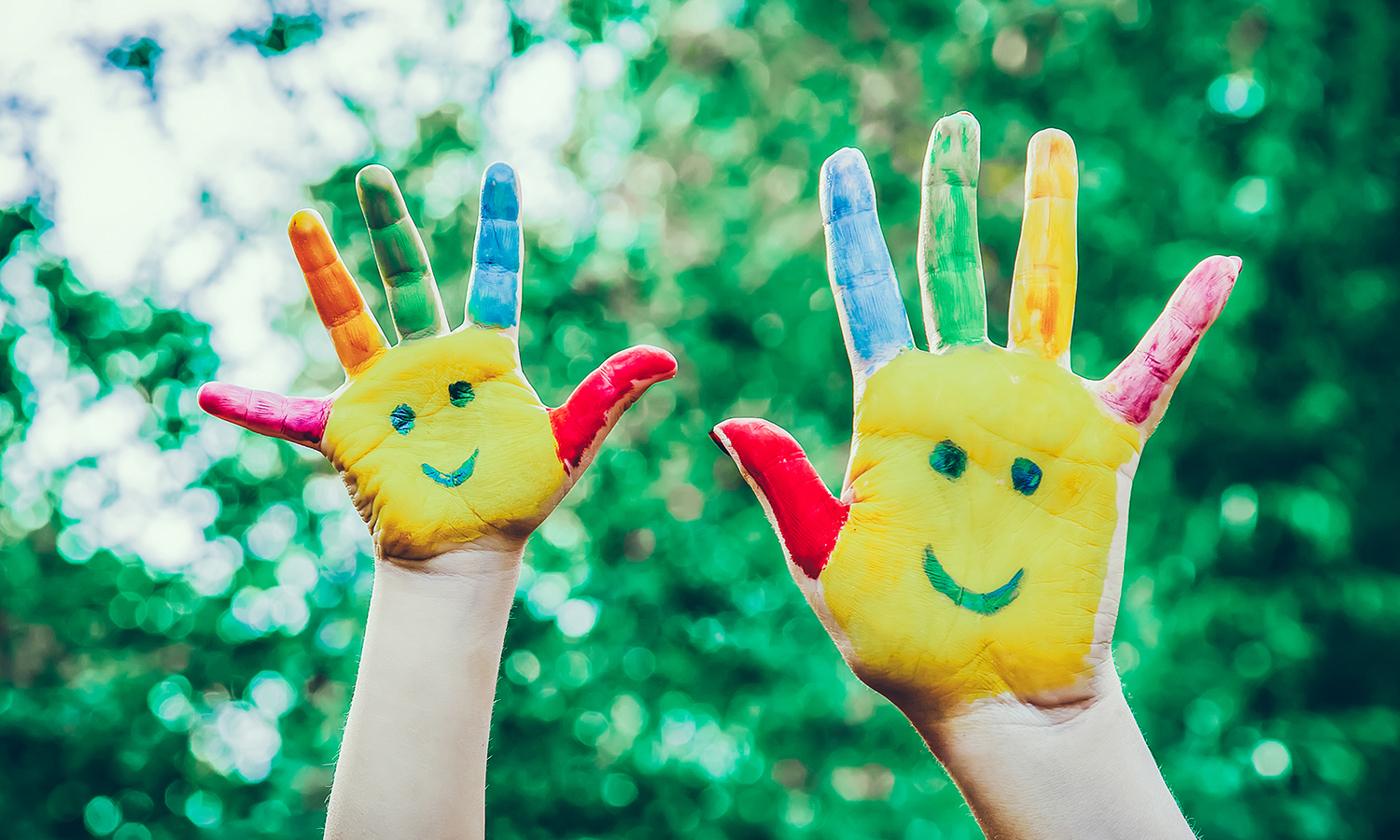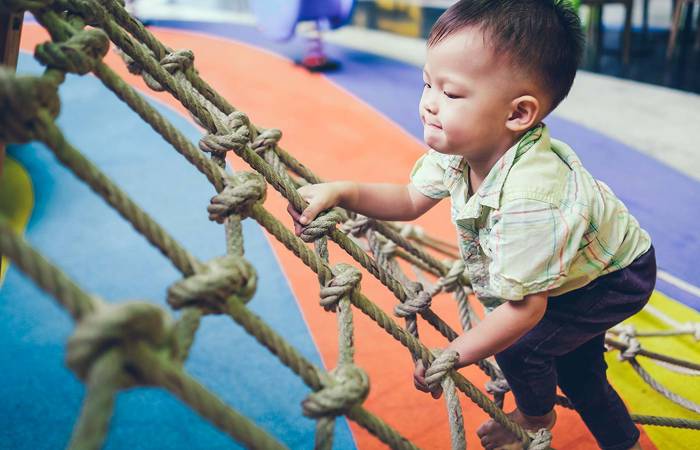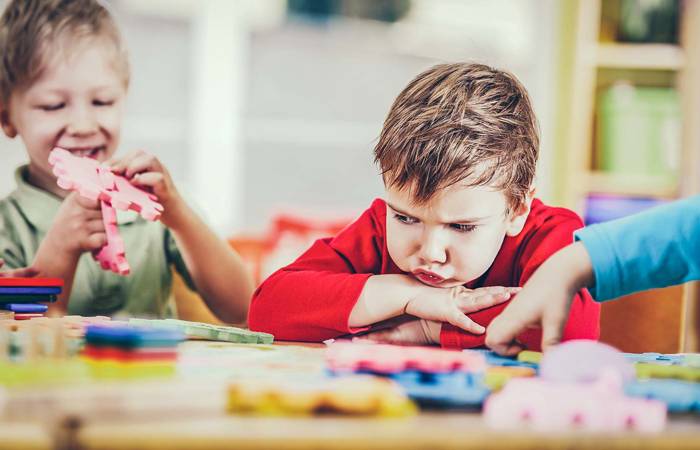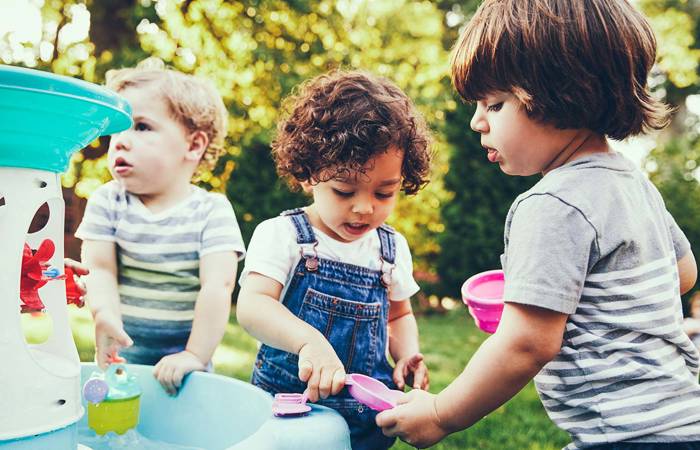Like what you see?
Sign up to receive more free parenting advice.
Thank you for subscribing to our newsletter!
Child Development

Credit: iStock.com/Yana Tatevosian
From an early age children interact with other children as well as family members, early childhood teachers and carers. The behaviour that helps them deal with people is known as ‘social and emotional behaviour’.
Controlling their own social and emotional behaviour is seen as being a critical skill to help children navigate life and deal with their own emotions and experiences.
A study by researchers from the University of New South Wales, in partnership with the University of Sydney, found that a child’s social and emotional behaviour is incredibly important and serves as a strong indicator of later outcomes.
The study, titled Social and emotional behavioural profiles in kindergarten: A population-based latent profile analysis of links to socio-educational characteristics and later achievement focused on a topic that the researchers believe has been relatively overlooked.
The study looked at the levels of social and emotional behaviours exhibited in the classroom by kindergarten children in NSW (aged around five years). The study involved 153,437 children who were assessed on five behaviours; these ratings were then used to identify social and emotional behavioural profiles.
Dr Rebecca Collie, a Scientia Fellow and Senior Lecturer in Educational Psychology at UNSW who co-authored the study, says researchers focused on key behaviours: cooperative, socially responsible, helpful, anxious, and aggressive-disruptive behaviours.
“We found that when children exhibited more of the prosocial behaviours, such as cooperative, socially responsible, helpful, and fewer anxious and aggressive-disruptive behaviours, this was linked with greater academic achievement in grades three and five,” Dr Collie says.
“But children in profiles with higher levels of aggressive-disruptive behaviours – such as physical violence, excluding other children, or temper tantrums – tended to receive lower results.
“These new results add to growing evidence that children’s social and emotional behaviours in the early years are powerful predictors of later outcomes, making it essential to teach social and emotional skills and behaviours from an early age.”
These skills are fundamental to the way we interact and our capacity to respond to and weather what life throws our way. Researchers are showing, for example, that if you have strong social and emotional skills you tend to be more resilient in day-to-day life.Dr Rebecca Collie
Stay up to date with the latest news and articles from First Five Years
Thank you for subscribing to our newsletter!
Navigating the social and emotional ups and downs
Dr Collie says the realisation that the social and emotional domains are also vital to students’ resilience and wellbeing is generating increased interest in teaching these behaviours and related skills, rather than assuming students would acquire them naturally during their schooling.
Why is it so critical to teach social and emotional behaviour from a young age? Dr Collie says prosocial behaviour helps to promote students’ active participation in collaborative learning activities.
“This type of behaviour also helps children to form positive interpersonal relationships in the classroom. Active participation and positive relationships are both linked with academic achievement, and other research shows they are also important for well-being,” Dr Collie says.
“Students need to interact with others and social and emotional behaviours are what help them do that. These skills are also important for helping students deal with their own emotions.
“Given this, when students are able to use prosocial behaviours more often this helps them to navigate the social and emotional ups and downs that regularly occur in life. There is promising research showing that when students learn how to be prosocial, they have more positive relationships in the short and longer-term.”
Five major social and emotional skills
A recent book edited by Dr Collie, Social and Emotional Learning in Australia and the Asia Pacific, revealed that there are five major social and emotional skills that are important precursors to adaptive social and emotional behaviours:
- Self-awareness, which refers to a person’s ability to be aware of and understand their emotions, values, strengths, and weaknesses (such as being able to identify feelings of frustration or anger when they occur)
- Self-management, which refers to the ability to control or adjust our emotions and behaviour as needed in different situations (such as being able to control one’s temper)
- Social awareness, which refers the ability to take other people’s perspective and feel empathy (such as being able to consider how a situation may be perceived by others)
- Relationship skills, which entail the capacity to listen effectively, communicate clearly, cooperate with others, and offer help as needed (such as being able to work well in a group)
- Responsible decision-making, which refers to the capacity to make choices in diverse settings that are respectful and constructive (such as understanding that actions appropriate at home may be different from those appropriate at school).
The positive mental and physical impacts
When it comes to developing positive relationships at school and beyond, Dr Collie says mounting evidence shows that social and emotional skills are essential. Not only do these skills help children and adolescents behave in ways that allow them to get on well with others, but they also help them perform well academically.
“These skills are fundamental to the way we interact and our capacity to respond to and weather what life throws our way. Researchers are showing, for example, that if you have strong social and emotional skills you tend to be more resilient in day-to-day life,” Dr Collie says.
“Because so much of our daily life involves interacting with others, it helps to have strong skills and behaviours in this area. Researchers have also been able to link these skills in childhood with positive mental, physical and financial outcomes in adulthood.
“Whether we look at our personal lives, school, work or sport, interpersonal interactions are critical to our capacity to integrate and succeed.
“These findings also show what an important role teachers play in developing these skills and showing students how the skills affect their relationships and their lives.”
The overall message Dr Collie hopes people take from the study is that it provides additional evidence that many factors help students succeed in life.
“Social and emotional behaviours are one such factor that play a role in success. Notably, the study provides additional evidence of the importance of helping children to develop positive social and emotional behaviours, along with strategies to reduce anxious and aggressive-disruptive behaviours.”






